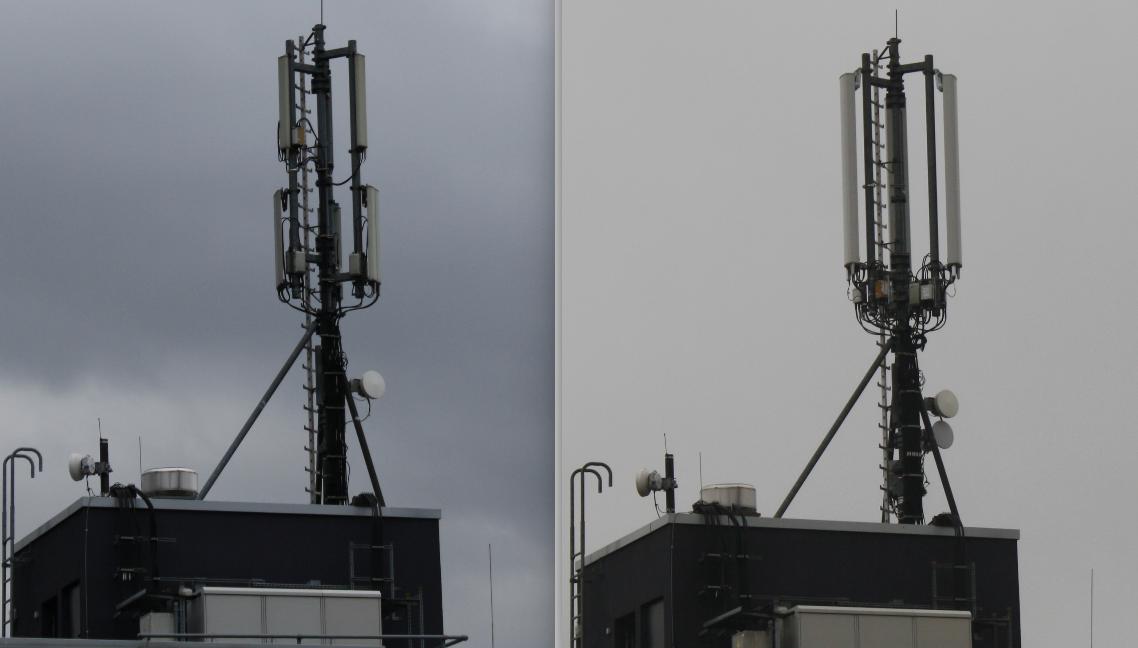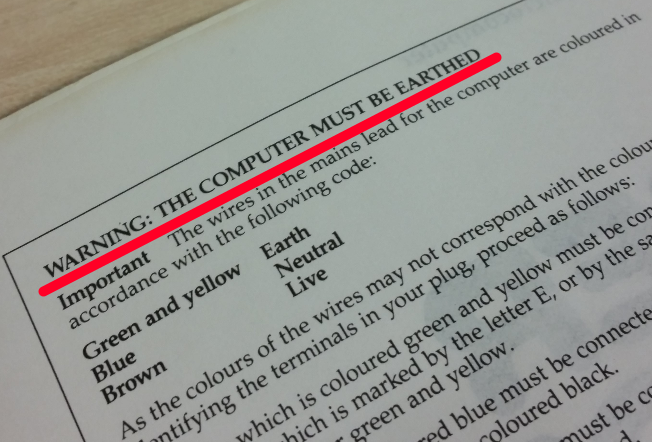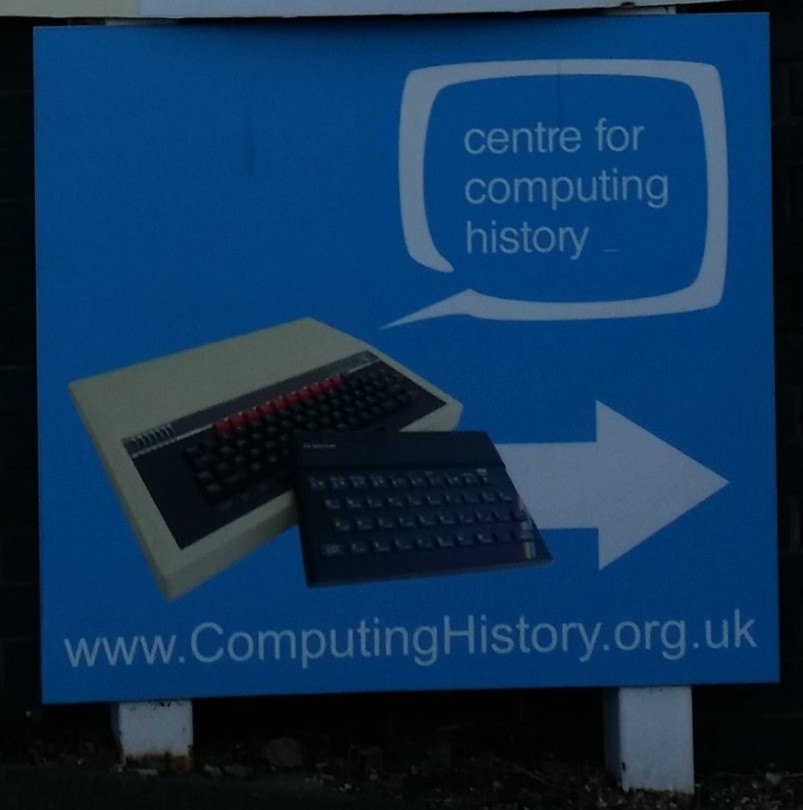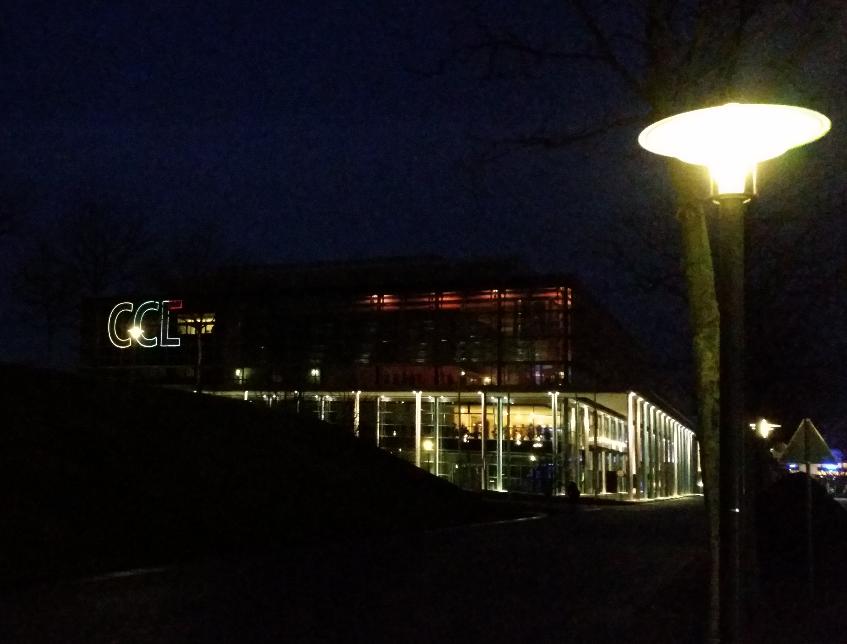 It is easy to assume that something as wide spread as a cellular network must be a mostly static installation that changes very slowly over time. As I will show in this post, however, this is hardly the case. Back in 2009 I moved into a place from which I have a very good view to a base station site across the street and since then I noticed quite a number of times that the base station configuration has changed significantly. On average, things have changed once very two years since then and I have taken pictures to document the process. The first picture shows the initial configuration ca. 2010 on the right. Two antenna configurations are stacked on top of each other and the lower configuration contains two antennas directly next to each other. In other words there were three physically separate antennas at this time.
It is easy to assume that something as wide spread as a cellular network must be a mostly static installation that changes very slowly over time. As I will show in this post, however, this is hardly the case. Back in 2009 I moved into a place from which I have a very good view to a base station site across the street and since then I noticed quite a number of times that the base station configuration has changed significantly. On average, things have changed once very two years since then and I have taken pictures to document the process. The first picture shows the initial configuration ca. 2010 on the right. Two antenna configurations are stacked on top of each other and the lower configuration contains two antennas directly next to each other. In other words there were three physically separate antennas at this time.
Book Review – Farthest North by Fridtjof Nansen
It’s winter time in Europe which means its dark and cold right now. While I mostly write about books I’ve read that deal with past and present communication technology and computing, I thought I’d make an exception today for a different book on a totally unrelated topic I recently read that fits the season. My choice fell on a classic, ‘Farthest North’, written by Norwegian polar explorer Fridtjof Nansen 120 years ago in 1897 about his 3 year voyage to reach the North Pole. On second thought, the book is perhaps not so much off-topic after all because after reading this book I got a much deeper appreciation of the enormous changes wireless communication brought about since then.
Continue reading Book Review – Farthest North by Fridtjof Nansen
Things That Moved Me In 2017
We are quite a bit into January 2018 already and I still haven’t come around to reflect which things from back in 2017 ‘moved’ me. But finally here we go this is my 2017 round up from cellular to history.
Meltdown – The Technical Lunchtime Pitch
 Over the past two days the Internet has been full of news stories about Meltdown and Spectre and how horribly and devastating these issues are. Chipset vendors scramble to update their microcode, operating systems get patched and even web browsers get an update. What I found missing in pretty much all articles, however, was how these attacks that can extract data from the kernel and other threads, actually work. So I resorted to reading the lengthy but very informative whitepapers on Meltdown and Spectre and since I haven’t found a good source that gives an abbreviated and easier to understand version I will attempt to do so myself. I was tempted to call this post the ‘Technical Elevator Pitch’ but quite frankly the elevator would have to stop for a little while to be able to finish the story. But I think it can be told over lunchtime…
Over the past two days the Internet has been full of news stories about Meltdown and Spectre and how horribly and devastating these issues are. Chipset vendors scramble to update their microcode, operating systems get patched and even web browsers get an update. What I found missing in pretty much all articles, however, was how these attacks that can extract data from the kernel and other threads, actually work. So I resorted to reading the lengthy but very informative whitepapers on Meltdown and Spectre and since I haven’t found a good source that gives an abbreviated and easier to understand version I will attempt to do so myself. I was tempted to call this post the ‘Technical Elevator Pitch’ but quite frankly the elevator would have to stop for a little while to be able to finish the story. But I think it can be told over lunchtime…
34c3 Round-Up Day 4 – More ‘In Spite of Everything’ Required!

Congress is over, long live Congress, only 360 days to go before the 35c3 opens its doors! The Twitter stream after the closing session reflects the general two feelings of participants quite well: Sadness that Congress is over and a great thankfulness for all the great experiences, impressions, thoughts and fruitful conversations with old and new friends.
Continue reading 34c3 Round-Up Day 4 – More ‘In Spite of Everything’ Required!
34c3 Roundup Day 3 – Pictures
34c3 Roundup Day 2 – Use More Bandwidth!

Like every year at Congress, backhaul capacity has again risen to yet another galactic level. According to momo on Twitter, 400 Gbit/s of backhaul capacity is available this time for the 15.000 participants of the Congress. Interestingly, even this number of people has difficulty of filling the pipe.
34c3 Roundup – Day 1
Bitcoins And Pizzas

This week the price for 1 Bitcoin has gone beyond 14.000 euros. It must be the biggest bubble ever that will burst at some point and leave a lot of people wondering how they could have possibly ever fallen for this. The chart on the left says it all. Perhaps they should have bought tulips instead?
The Computer Must Be Earthed!

 A few days ago on a sunny but freezing cold Friday afternoon I had a few hours to visit the Centre for Computing History in Cambridge. I was very much looking forward to it as the first computer I ever programmed on was a Sinclair ZX80 that was built in the UK back in 1980 by Sinclair Research. Little did I know at the time where this computer was designed and that the UK was quite a phenomenon in Europe back then as it had a vibrant home computer industry. Sinclair and Acorn where the most well known Cambridge based home computer companies but there were dozens of others at the time.
A few days ago on a sunny but freezing cold Friday afternoon I had a few hours to visit the Centre for Computing History in Cambridge. I was very much looking forward to it as the first computer I ever programmed on was a Sinclair ZX80 that was built in the UK back in 1980 by Sinclair Research. Little did I know at the time where this computer was designed and that the UK was quite a phenomenon in Europe back then as it had a vibrant home computer industry. Sinclair and Acorn where the most well known Cambridge based home computer companies but there were dozens of others at the time.

